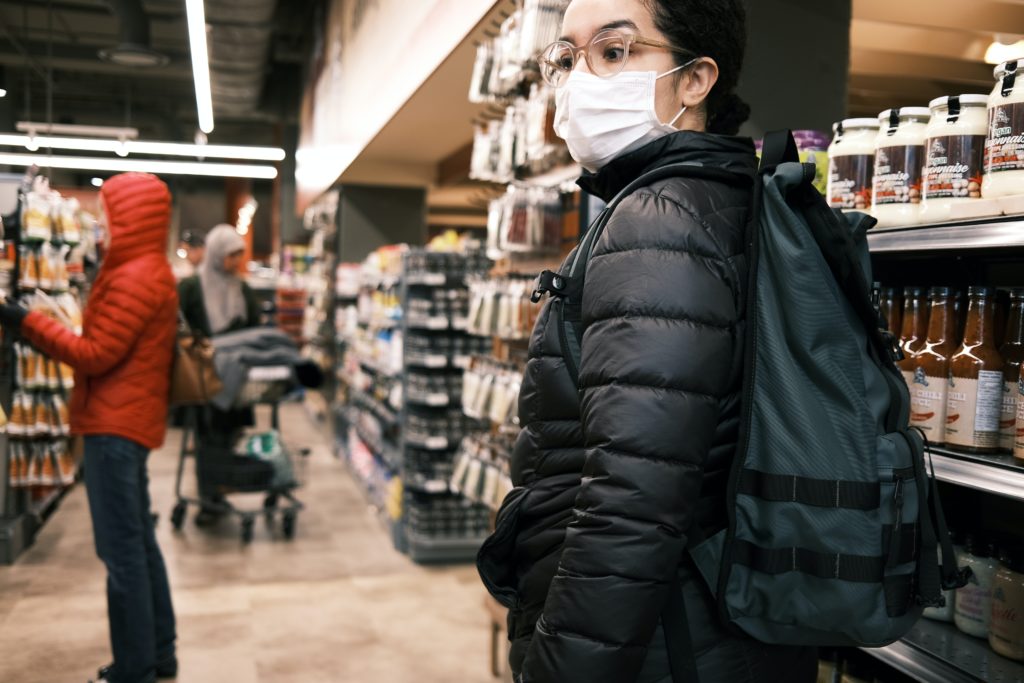Climate Action
This Week on Earth: Americans want more climate action
June 26, 2020
Good morning, and welcome back to This Week on Earth. Each week, we highlight the latest environmental news and what it means for our planet.
As protests over police brutality and racial injustice continue, statues are toppling across the United States and Europe (including one featuring noted conservationist Teddy Roosevelt). The Arctic circle is heating up, with Siberia hitting 100 degrees Fahrenheit. And a giant dust storm is headed across the Atlantic.
Check out our week in review.
Americans want more climate action
A new Pew Research Center survey released Tuesday suggests two-thirds of Americans believe the federal government needs to take more aggressive actions to fight climate change. The survey covered topics from offshore oil drilling to environmental regulation.
While most divisions among those surveyed correspond with party lines, voters across the board seemed to agree on two climate solutions: tree-planting and tax credits for businesses that capture and store CO2.
This becomes important as American voters head to the polls in November. Read the full story by The Washington Post.

Bayer pays billions
On Wednesday, Bayer announced payments of more than $10 billion to end legal trouble related to an active ingredient in Roundup, a weedkiller owned by the chemical giant, NPR reports. Plaintiffs in over 100,000 lawsuits say the chemical glyphosate harmed them, and in some cases, caused them to develop cancer.
The World Health Organization’s International Agency for Research on Cancer classified the chemical as “probably carcinogenic to humans” five years ago. But many government health agencies still deem it safe to use.
Put up or shut up
For over a month, protests have connected racial justice to climate justice. With cities and states struggling to address both racial and environmental justice, the state of New York seems to be forging ahead on one of its environmental justice initiatives. This week, it announced $10.6 million in grants to help underserved communities access affordable solar energy.
“In this moment where you have elected officials tripping over each other to claim some portion of the Black Lives Matter mantle, this is the moment where they have to put up or shut up,” Eddie Bautista, executive director of the NYC Environmental Justice Alliance, told Grist. “It’s easy to put out a statement when you’re seeing police brutalizing people, but what do you do when the very air is brutalizing people?”
The money will help offset resource barriers that typically prevent low-income residents — particularly communities of color — from installing clean energy or energy storage in their homes.
The U.N. is sounding the alarm on climate refugees
Climate disasters are piling up, causing a chain effect. And it’s not just destroying ecosystems — its destroying crops and livelihoods, displacing millions.
A United Nations report released last week cited that one out of every 97 people faced displacement last year. And for the first time ever, the report included climate change as one of the events causing displacement. Read the full story at Earther.

Reusable containers OK during the pandemic
The pandemic has been a lot of things, but consistent is not one of them. As new research emerges every day, organizations release new guidelines and leaders adjust reopening plans.
Many stores have also banned reusable bags or containers, fearing a spread of the coronavirus. But more than 100 scientists this week signed a statement that reusable containers do not increase the chance of virus transmission.
“In terms of the general public’s response to the COVID crisis, we should make every attempt to avoid over-consumption of single-use plastics, particularly in applications like packaging,” Charlotte K Williams, one of the signatories, told The Guardian.
Amazon and Ford announce climate initiatives
On the same day Amazon reported that its carbon footprint grew 15% last year, it announced a new climate initiative, the Associated Press reports. The online retail giant said that though its overall carbon footprint was up, its carbon emissions per dollar dropped 5%.
Ford Motor Company also announced its own carbon goal this week: to become carbon neutral by 2050. The company has an uphill battle not only with transitioning to renewable sources of energy, but for addressing emissions released from its vehicles once on the road, reports The Hill.
2020 so far…
We’re halfway through 2020, and my god, what a year. Mashable compiled 2020’s 14 biggest science stories so far. The pandemic unsurprisingly tops the list, but here’s what else stands out:
2020 saw the hottest January on record, the second-hottest February on record, the second-hottest March on record, the second-hottest April on record and the hottest May on record. The year also saw atmospheric CO2 hit a record high.
And it’s only June.

And to all the dads: Happy belated Father’s Day
Animal dads guard nests, sit on eggs, carry and play with their kids, defend territories. To celebrate that sometimes dismissed bond, National Geographic put together a collection of heartwarming moments between animal dads and their babies.
From the outside, it seems animal dads don’t give as much love to their offspring as animal moms. But according to animal behavior expert Jennifer Verdolin, we must challenge what society tells us about those relationships.
“We have this narrative that mothers are caring and when a dad does it, it’s somehow miraculous,” Verdolin told National Geographic.
